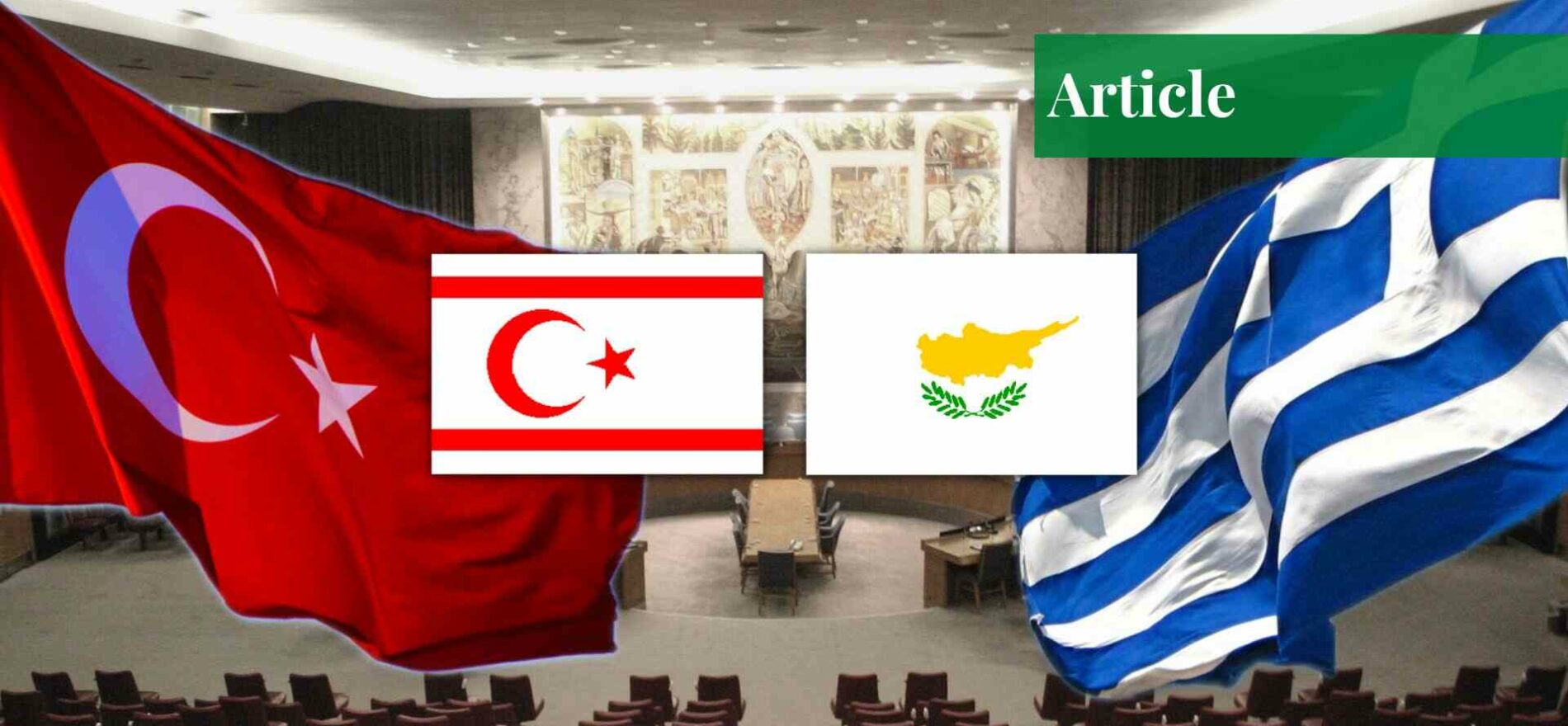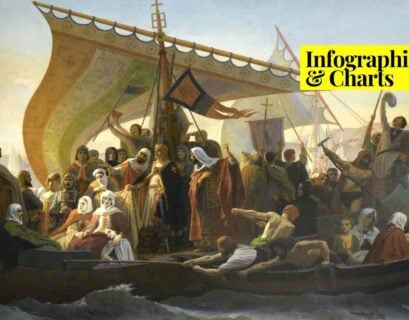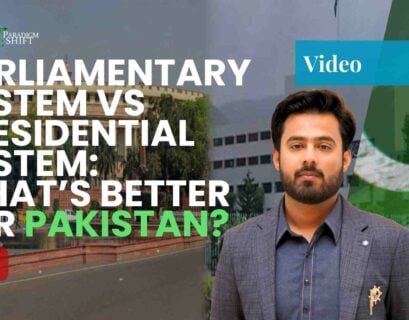Hafsa Ammar is a graduate of the National Defence University, Islamabad. Her areas of expertise are narrative building and propaganda warfare, centered around the Soviet Union and modern-day Russia.
Introduction
In our world, conflict is inevitable. No matter how well-oiled a society may be, arguments, clashes, and differences of opinion will persist. When we look at this phenomenon from a wider lens, we see that the same would apply to the case of states. Sharing borders doesn’t guarantee friendly relations as evidenced by India-Pakistan, India-China, Russia-Ukraine, and many more antagonistic pairings. Coming from the same roots, sharing linguistic, social and cultural practices, yet enemies at their best.
The priorities of any state in the international system are the same: advancing national power and securing state sovereignty. These goals don’t change even if the state is locked in conflict. However, they are inclined to negotiate or compromise in order to terminate a conflict because no state can hold up in war infinitely.
The favored method of conflict resolution is negotiation as it brings the major actors of said conflict to the table for peace talks. If attempts at negotiation fail or the needs of both sides are not being met, then a third party intervenes as a mediator. Mediation is an informal form of conflict resolution where the third party has no stakes in the conflict or its outcome itself for the sake of impartiality; however ideal of a condition, this is rarely true because a state will often only mediate if it sees it benefitting it in the long run.
The Cyprus Conflict
The Cyprus dispute was a conflict based on both structure and values of the Turk and Greek Cypriots. Cyprus came to life when the land situated between the Middle East and Europe was turned into a British colony after the decline of the Ottoman Empire. The Turkish were favored during the formation of a governmental structure which meant they held the reins of the country, leaving a sour taste in the mouth of the unrepresented Greek Cypriots.
The tensions between both kept building over the years after the independence of Cyprus, but the trigger to the historical conflict was the shooting of two Turks on 21st December by Greek guards in a brawl over identification cards and prostitutes. The exact details of the event have been muddled in between the indignance of the Turks and the denial of the Greeks, but it was strong enough to initiate a secession.
Before the funeral pyres had cooled down, over a hundred villages had been massacred. The fighting continued till the 24th when Britain decided to call a cease-fire and mediate. However, there was no common ground on which leaders of either side could agree, thus the matter was sent to the United Nations Security Council (UNSC). The UNSC decided to send in peacekeeping forces to keep the peace while the leaders worked out the conflict.
According to Maslow’s hierarchy of needs, there are some requirements that a state must fulfil for its citizens to avoid conflict. Both the Greeks and Turks were deprived of a sense of belonging as they had opposing cultures, traditions, and languages along with an imbalance of power and representation in state matters. In the Cyprus dispute, Greece naturally supported the Greek Cypriots just as Turkey stood behind the Turks.
Turkey & Greece Take Their Sides
In any conflict, it is imperative to resolve present tensions before focusing on the past. Therefore, it was important to bring both parties to common ground. Turkey was rearing to interfere via invasion to protect the Turks, but the international community knew that once the conflict escalated to such a stage, they’d move past their win-win mindset and the conflict would reach a point of no return. This is where the US used its influence over Turkey to stop the invasion. America sent a letter threatening to withhold NATO assistance in a situation where the USSR would interfere on behalf of Greek Cypriots.
Stopping a Turkish invasion was incentive enough for the US to step in as a mediator because any sort of invasion would have become a threat to the cohesion of NATO. As intercommunal violence grew, all parties realized that a cease-fire was essential, thus in 1964 they accepted the UNSC-offered resolution and tried their hand at peacemaking.
Over the next few years, Turkey gained more power and cautiously approached the USSR for friendly relations, lowering its dependence on the US and becoming the dominant military power in the region. Greece, knowing that it wouldn’t hold up in a full-fledged war against Turkey as it had been considerably weakened by internal political struggles, worked on its relations with Turkey and they both reached a solution for the Cyprus conflict.
However, President Makarios of Cyprus played the role of a spoiler in their attempts at peace talks. He thought that agreeing to any proposal put forth by the two states would compromise the sovereignty of Cyprus, which is why he kept backing out of agreements or rejecting certain postulates. His public denouncement of peace proposals eventually wore down the fragile peace between Turkey and Greece.
There were many proposed peace plans offered up by different mediators such as Galo Plaza Secretary General Thant’s attempt at bringing together the Turk and Greek Cypriots through CBMs but any and all such plans failed. In November 1967, Greek Cypriots, led by Georgios Grivas, attempted to assert dominance in Turk territory all the while fueled by the idea of Enosis (political unity of Greece and Cyprus). Turkey prepared its army and threatened to intervene if the Cyprus government didn’t immediately take steps to provide extra security for the Turks.
America, Great Britain, and Canada all came forth with mediation efforts and Greece itself recalled Grivas as a show of faith, but Turkey refused to take part in any negotiations until the political balance in Cyprus was restored. Since Greece wasn’t ready to bow to Turkish orders, the American President decided that his personal involvement was necessary and he sent, who was perhaps the most important mediator of this whole conflict, Cyrus R. Vance.
Vance would travel from Ankara to Athens and eventually reduce tensions between Turkey and Greece, but Makarios proved to remain a thorn in the side of any mediator. He wanted a guarantee from UNSC that Turkey would not invade his state under any circumstance, but guarantees of any sort are not covered under third-party intervention. The US initiated peace processes and its influence was enough to keep Turkey’s invasion at bay but following through with the peace processes was up to Greece, Turkey, and Cyprus.
Greek and Turk rivalries came back to life in 1973 over gas exploration disputes in the Aegean Sea, and they only rose further when on July 15th 1974, enosis sticklers along with the support of the Greek government overthrew Makarios’s reign. This led to Turkey finally following through on its threat and invading Cyprus on 20th July despite US and UN warnings against doing so. The UNSC again called for a ceasefire on 22nd July, and all states could see the repeated pattern from the past.
Eventually, Greece agreed to provide Cyprus with aid but resisted facing Turkey in an all-out war. Greece withdrew from NATO military command, and the US Congress suspended military aid to Turkey in early 1975. The Turk Cypriots formed a de facto state known as the Turkish Republic of Northern Cyprus which isn’t internationally recognized by states apart from Turkey.
International Mediation
International mediation is vital for world peace. Third-party interventions bring minds to the table which are not attached to the conflict emotionally, financially, or ideologically. They keep the balance of power and can turn peace agreements politically appealing to the actors. Providing a solid way out for the actors in conflict is the most important part of any mediation process. It is essential that the mediator understands that all parties to this conflict are after the same goal, self-preservation, and would lean towards a solution that goes in accordance with this.
Mediation would be futile if any aim oversteps the limit of what a state is willing to compromise on. Therefore, all mediators should be clear on the needs, interests, and positions of all actors involved in a conflict. Cyprus mediations show that though they were unable to fully resolve the conflict, their limited successes were a step in the right direction and helped avoid many deaths and much destruction.
If you want to submit your articles and/or research papers, please check the Submissions page.
The views and opinions expressed in this article/paper are the author’s own and do not necessarily reflect the editorial position of Paradigm Shift.


















